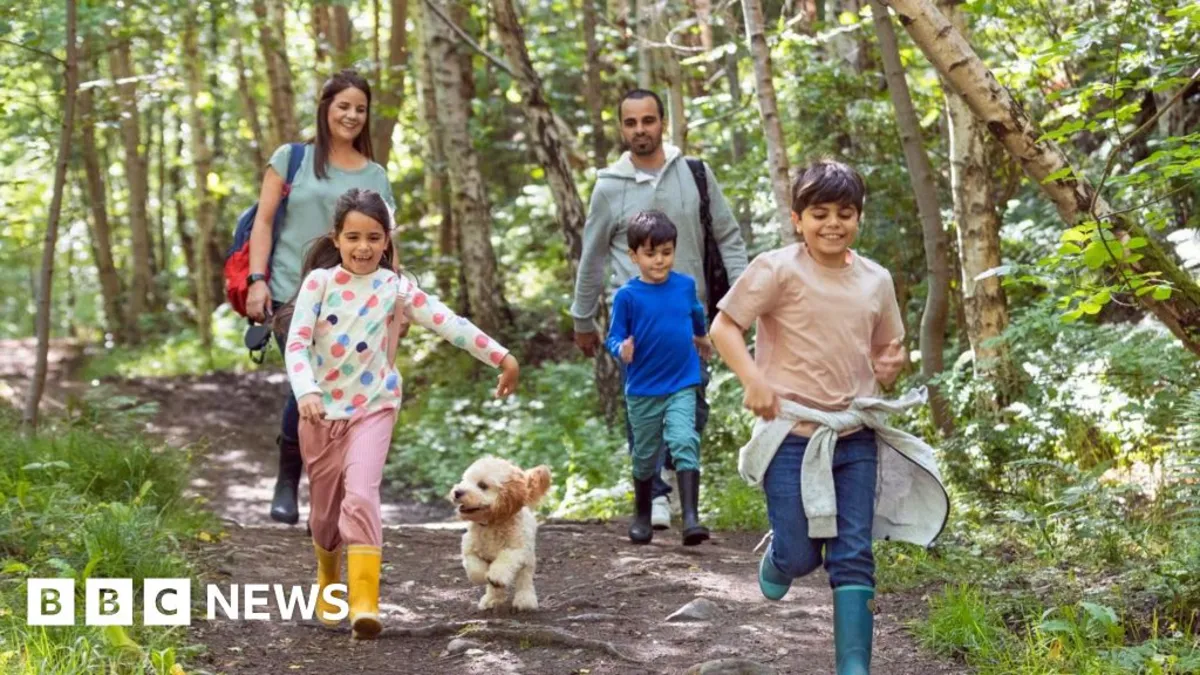
If you've ever experienced a sense of calm after taking a walk in the park or wandering through the woods, you're not imagining it—it's rooted in biology. Spending time outdoors can instigate measurable changes within your body, such as lowering stress hormones, easing blood pressure, and even improving gut health. Remarkably, you don't need to embark on a lengthy hike to reap these benefits; maximum effects can be achieved in as little as 20 minutes. This means that even a brief lunchtime stroll to the park combined with a sandwich on a bench a few times a week can significantly enhance both your body and mind. Here are four compelling ways that immersing yourself in nature can boost your health.
When you find yourself surrounded by green trees, inhaling the scent of pine, and listening to the gentle rustle of leaves or the melodic sounds of birdsong, your autonomic nervous system responds almost immediately. This reaction can occur during a simple visit to your local park. According to Baroness Kathy Willis, a biodiversity professor at Oxford University, your body undergoes physiological changes, such as a reduction in blood pressure and an increase in heart rate variability, leading to a slower heart rate. A study conducted in the UK, which included nearly 20,000 participants, revealed that those who spent at least 120 minutes per week in green spaces reported significantly better health and higher psychological well-being. The evidence supporting the benefits of spending time in nature is so strong that some communities have initiated green social prescribing, which connects individuals with nature to enhance physical and mental health, resulting in improved happiness and well-being.
Your body's hormonal system also plays a vital role in relaxation when you immerse yourself in nature. Baroness Willis notes that spending time outdoors significantly lowers levels of cortisol and adrenaline, hormones associated with stress and anxiety. A notable study found that individuals who spent three days in a hotel room while inhaling Hinoki (Japanese cypress) oil experienced a substantial reduction in adrenaline and a pronounced increase in natural killer cells—cells that combat viruses in the body. Impressively, participants maintained elevated levels of these natural killer cells for up to two weeks after the exposure. Professor Ming Kuo from the University of Illinois at Urbana-Champaign summarizes the effect succinctly: "Essentially, nature calms what needs calming and strengthens what needs strengthening." Research indicates that even a three-day weekend spent in nature can significantly enhance your virus-fighting capabilities, with effects persisting for up to 24% above baseline levels even a month later. Shorter timeframes in nature also yield positive, although smaller, persistent effects.
The olfactory experience of nature is just as impactful as visual and auditory stimuli. The scents of trees and soil are packed with organic compounds released by plants, and when inhaled, some of these molecules enter your bloodstream. Professor Willis points out that the smell of a pine forest can induce calmness in under 20 seconds, with that effect lasting for approximately 10 minutes. Interestingly, research has shown that even very young infants—who have no associative memory with specific scents—calm down when exposed to pine fragrance in their environment, indicating that the relaxing effects of nature are deeply ingrained and not merely psychological.
In addition to soothing your mind, spending time in nature can also enhance your microbiome. Soil and plants are abundant in beneficial bacteria, which are the same types often found in probiotics and health drinks. Professor Ming Kuo has extensively studied the impact of these bacteria on factors like infection susceptibility and mental health, suggesting that inhaling them could elevate your mood. Moreover, the antimicrobial chemicals released by plants—known as phytoncides—may help in fighting disease. Dr. Chris van Tulleken, an infection scientist, views nature as a positively challenging environment that stimulates your immune system. He encourages his children to engage with dirt in the forest, allowing these beneficial microbes to enter their systems through both the nose and mouth.
In conclusion, the evidence is clear: spending just 20 minutes in nature can yield substantial health benefits. From reducing stress and improving mood to enhancing your gut health, the great outdoors is a treasure trove of wellness opportunities waiting to be explored.